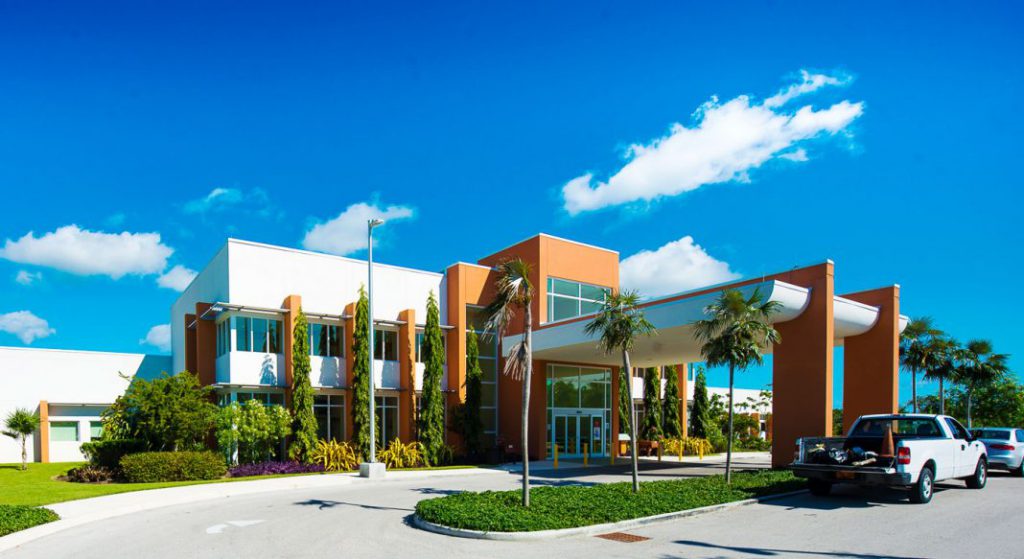
From saving a baby born with his heart in his stomach to successfully removing a pole that impaled a man in his chest, Health City Cayman Islands has been working with cutting-edge technology and qualified surgeons from around the world to enhance health care in the Caribbean.
It’s those cases and the countless life-saving procedures, done at a fraction of what it would in the United States, that Health City says justifies the concessions that it receives from the Government.
The recent court judgment regarding Health City’s concessions put the institution’s operations in the spotlight.
Addressing the decades-long duty, stamp and work permit waivers signed by Health City founder Dr Devi Shetty and the United Democratic Party 12 years ago Health City points to its role in the Cayman economy, its role in enhancing medical tourism in the Caribbean and, most importantly, its affordability to patients in the Cayman Islands, the Caribbean and Latin America, as well as the United States and Canada.
“As would any investor, Health City Cayman Islands sought concessions from the Government of the Cayman Islands, which were approved by Cabinet and maintained since the initial granting of the waiver in 2014. However, to date, Health City has availed itself of less than US$15 million, a fraction of the overall value of concessions that we could have benefited from,” said Shomari Scott, Chief Business Officer for Health City Cayman Islands.
“Health City took a leap of faith and invested close to US$250 million directly into medical infrastructure in the Cayman Islands, the largest private investment for healthcare in the Islands’ history. In doing so, we have established an internationally-accredited centre of global excellence for medical care and medical tourism, which has earned the Gold Seal of Approval by Joint Commission International (JCI),” Scott added.
Founded by renowned Indian heart surgeon Dr Devi Shetty, Chairman of Narayana Health, Health City is built on his practice of offering world-class medical procedures at a fraction of what it would cost in American institutions.
Utilising technology and the expertise of surgeons and doctors from around the world, Health City has stamped its mark in the hemisphere with procedures such as robotic navigation for joint replacements, installation of artificial hearts or left ventricle assist devices (LVAD), transcatheter aortic valve replacements (TAVR) or implantations (TAVI), minimally invasive close extraction for strokes and renal denervation.
Among the institution’s firsts since it opened in April 2014, is the conduct of the first awake craniotomy in the English-speaking Caribbean, the first cryoablation in the region, and the first hybrid procedure to repair an aortic arch aneurysm in the Cayman Islands.
Apart from what it has been able to offer clients, Health City says its contribution to the Cayman economy cannot be discounted.
“Research has shown that during the first five years of operations, US$79.9 million was contributed directly to the local economy. Through excellence in healthcare delivery, Health City has put the Cayman Islands on the medical tourism map with US$40 million in advertising value and US90 million in public relations value. Among the prestigious international media outlets that Health City has been featured in and provided exposure for the Cayman Islands include Harvard Business Review, Forbes, USA Today, and PBS,” Scott says.
“Additionally, our outreach to the community has included the provision of over 27,900 educational opportunities to students in the Cayman Islands since 2014, including innovative on-demand science videos; Shadow Doctor Internships, secondary school work experience placements and other internships, as well as other presentations to schools, hosting field trips and day camps. This is in addition to thousands spent in academic grants, scholarships and graduation awards.”
Addressing claims that Health City’s practitioners are not registered under the “Principal List”, Scott points out that the Registrar of the Health Practice Councils has confirmed to the court that Health City has always met the standard.
The Registrar, Dr Carlene Vassell-Webb, says in her affidavits in that “practitioners registered on the Institutional Registration list are required to meet the same criteria as practitioners registered on the Principal List as specified under Section 24 (2) of the Health Practice Act.”
Dr Vassell-Webb says the Medical and Dental Council “requires institutionally registered practitioners who are practicing as specialists to satisfy the same experience and educational requirements relating to their specialties as persons on the Principal Registration list”.
She also clarified that Health care facilities are inspected in accordance with National Standards and the Commission grants healthcare certificates once all the standards and legislative requirements are met and there is no difference between Health City requirements and other medical institutions in this regard.
To ensure full public trust, Scott says having Health City consistently publish their quality of medical and surgical outcomes that routinely surpass the benchmark for United States hospitals, which have been available to the public on their website.